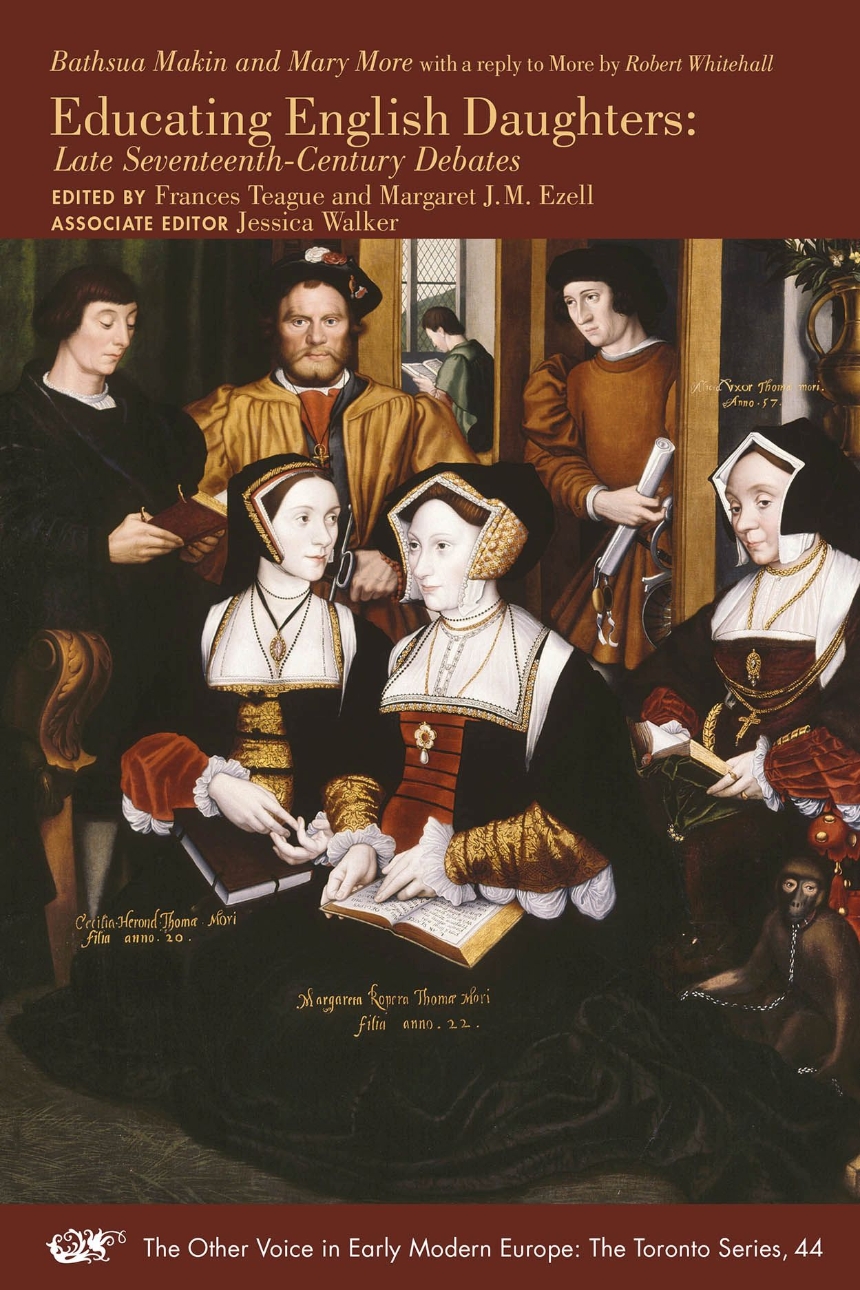This edition offers texts from Bathsua Makin and Mary More, and Robert Whitehall’s response to More’s argument. Makin describes the appropriate education for London merchants’ daughters, arguing that girls should be educated and should aspire to follow learned women in history, and that educated women improve their families and themselves. More argues that women have the right to an education, and that such an education shows that the inequality of married women under English law is a man-made institution. More’s argument drew objections from her Oxford reader, Robert Whitehall, who preserved her manuscript with his own. Makin and More enjoyed a measure of public recognition and esteem, yet after their deaths, they and their texts were largely ignored until the late twentieth century.
201 pages | 6 x 9 | © 2016
The Other Voice in Early Modern Europe: The Toronto Series
Literature and Literary Criticism: General Criticism and Critical Theory
Table of Contents
Illustrations xi
Abbreviations xiii
Acknowledgments xv
INTRODUCTION 1
PART I: BATHSUA MAKIN (1600–1681?) 25
Bathsua Makin and Women’s Education 27
The Ancient Education of Gentlewomen (1673) 51
PART II: MARY MORE (1633–1716) and ROBERT WHITEHALL (1625–1685) 97
Mary More and Robert Whitehall: Lives and Writings 99
Mary More, The Woman’s Right (ca. 1674) 129
Robert Whitehall, The Woman’s Right Proved False (ca. 1674) 145
Bibliography 171
Index 185

